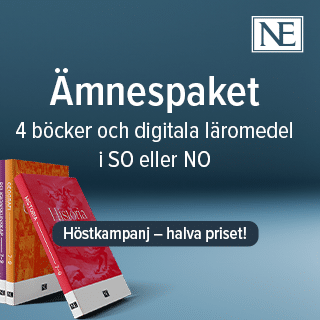Musiken, skolan och livsprojektet: Ämnet musik på gymnasiet som en del i ungdomars identitetsskapande
Manfred Scheid
Professor Per-Olof Erixon, docent Anna Larsson och Claes Ericsson, Umeå universitet
Professor Bengt Olsson, Högskolan för scen och musik. Göteborgs universitet
UmU – Umeå universitet
2009-02-06
Musiken, skolan och livsprojektet: Ämnet musik på gymnasiet som en del i ungdomars identitetsskapand
Music in school and the life projekt. Music in upper secondary schools as part of young people´s identity construction.
Faculty of Teacher Education, Creative Studies (Teacher Education)
Musiken, skolan och livsprojektet: Ämnet musik på gymnasiet som en del i ungdomars identitetsskapand
Mycket av ungdomars fritidsaktiviteter bygger på, innehåller eller ramas in av musik där ungdomar genom musikval och stilkännedom skapar sina identiteter och livsprojekt. Denna studie undersöker relationen mellan musikaktiviteter i skolan och på fritiden, hur ungdomar använder musik i dessa miljöer och hur de samverkar. Studiens teoretiska ram består av teorier om ungdomars situation i sin samtid och innefattar dels sen- eller postmoderna teorier, dels uppfattningen att vi skapar vår kunskap och vår identitet i en social kontext, socialkonstruktionsism. Medier, musik och identitet är tre centrala områden i studien. Begrepp som autenticitet, individualisering, reflexivitet, estetisering och görbarhet ligger till grund för bearbetningen och analysen av materialet. Emperin samlades in bland tre grupper elever som gick sista året på gymnasiet och består av en enkätundersökning där 83 elever deltog, observationer och intervjuer med 29 av dessa elever.
Musik beskrivs som en aktivitet och positionering av individen i en socialkontext, eller som ett identitetsskapande som jag vill uttrycka det. Känslor är viktiga i musik och enligt eleverna skapas känslor av musikern, förmedlas genom musik och tolkas av lyssnaren. Det är viktigt att var autentisk och att äga en unik identitet, vilket är möjligt att uppnå med musik. I studien kopplar eleverna samman musik med känslor och känslor med sig själva, något jag definierar som Musik=Känslor=Jag. Musik symboliserar tillhörighet, livsstilsval och etiska ställningstaganden, och ungdomar kombinerar stereotyper från olika genrer utifrån personliga syften, tillfälle och orsak. Det är viktigt att framstå som öppensinnig och kreativ, vilket enligt eleverna kan utvecklas genom musikaktiviteter. Musik som identitetsmarkör är verksam både på fritiden och i skolan. Utifrån en föreställning att ungdomars handlingar kan ses som seismologiska utslag på tendenser i samhället indikerar denna studie att musikaktiviteter i gymnasieskolan kan ses som kulturella investeringar av ungdomarna i sin identitet och i sitt livsprojekt.
Music in school and the life projekt. Music in upper secondary schools as part of young people´s identity construction.
Young people s recreational activities are based on, contain or are framed by music, where by choosing music and applying knowledge about styles they construct their identities and lifestyle projects. This study explores the relationship between music activities at school and in leisure time, how young people use and perceive music in these two environments and in what way they interact. Theories and research on late and post modernity, social construction, media, youth culture and music education are utilized in this study. Concepts such as authenticity, individualization, reflexives, aestheticization and makeability are concerns in the processing of the empirical data. The study is based on a survey, observations and interviews where three musical environments in two different upper secondary schools were investigated. 83 third-year pupils completed the survey, out of whom I interviewed 29 pupils.
Music is pictured as an activity and a positioning of the individual in a social context, or as a construction of identity, as I prefer to put it. Emotions are essential in music, and according to the pupils emotions are created by the musician, mediated in music and interpreted by the listener. It is important to be authentic and to have a unique identity, which is possible to achieve in music. In the study pupils equal music to emotions and emotions to the self, which I define as Music = feelings = I. Music symbolizes cultural affiliation, lifestyle choices and ethical standpoints described in stereotypes which young people gather from various attributes and combine personally depending on the time and cause. It seems important to be open-minded and creative, which can be promoted by music activities according to the pupils. Music as a characteriser of identity seems to be at stake both in leisure time and at school. Based on the notion that young people s behaviours are seismic readings of tendencies in society, this study implies that upper secondary school music activities are cultural investments in identity and in the students life projects.
Relaterade länkar

Fritidshem
 Åk F–6
Åk F–6 Matematikångest
 Åk 4–Vux
Åk 4–Vux 






